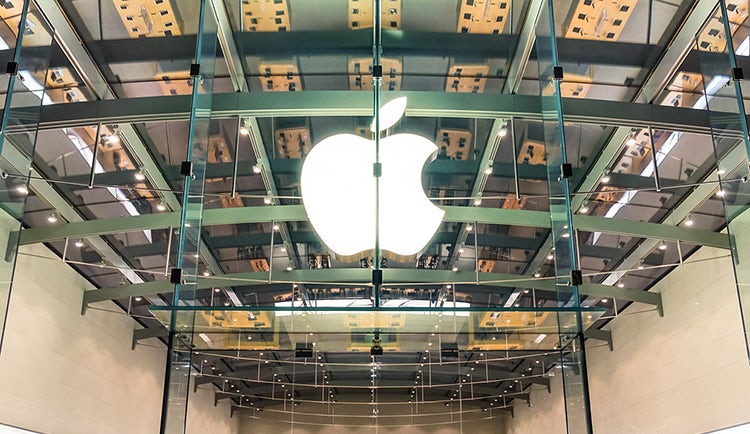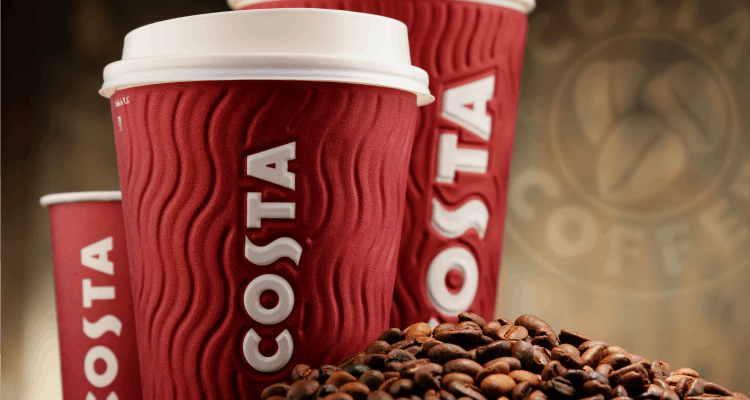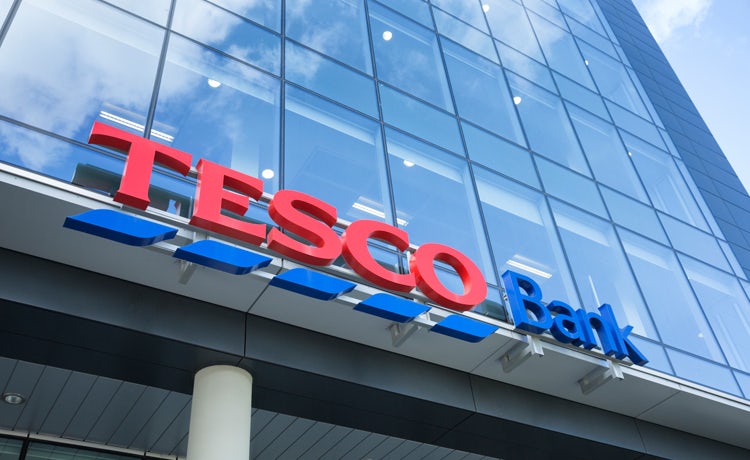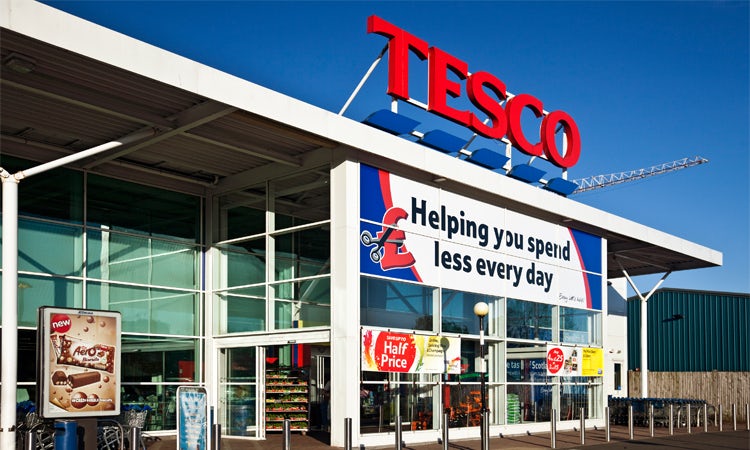Unilever, Waitrose, Samsung: Everything that matters this morning
Good morning and welcome to Marketing Week’s round-up of the news that matters in the marketing world today.

Unilever drops plan to move HQ from UK to Netherlands
Unilever has scrapped plans to move its UK headquarters to Rotterdam in the Netherlands after bowing to investor pressures. Marijn Dekkers, chairman of the consumer goods giant, says Unilever will now consider “next steps”.
“Unilever has built a long track record of consistent and competitive performance. The board continues to believe that simplifying our dual-headed structure would, over time, provide opportunities to further accelerate value creation and serve the best long-term interests of Unilever,” he says.
“We will proceed with the plan to cancel the NV preference shares, further strengthening our corporate governance.”
READ MORE: UK’s third biggest company scraps plans to move HQ from London to Rotterdam
Waitrose to allow delivery drivers into customers’ homes as part of new trial
Waitrose will send delivery drivers into customers’ homes to unpack their groceries while they’re out as part of a trial.
Shoppers will use smart lock technology to set an access code for their door, which is erased when the delivery is complete. To reduce security fears, the driver will be made to wear a camera on their vest and footage can be requested by the customer the following day.
The trial, which will be the first of its kind in the UK, will start later this month and include about 100 homes in South London. Similar services have already been rolled out in the US and Scandinavia.
The supermarket, which is owned by the John Lewis Partnership, plans to make the service available to more than 1,000 customers next year, depending on how successful the trial is.
READ MORE: Waitrose to trial delivery service allowing drivers into your home while you’re out
New car sales slump to lowest levels since the financial crisis

New car sales slumped by 20% in September to the lowest figure seen since the financial crisis a decade ago.
The number of vehicles registered was down 20.5% to 338,834, compared to the same period last year. Registrations for private consumers, business and fleets all experienced a fall in sales.
When it comes to vehicle types, minivans and sports cars recorded the greatest sales fall, dropping 55% and 51% respectively, followed by diesel vehicles (43%). Sales of hybrids and plug-in electric vehicles climbed but only by 3.9%.
The decline has been linked to new emissions testing requirements introduced on 1 September that “continue to affect supply and distort the market”, according to the Society of Motor Manufacturers and Traders (SMMT).
“With the industry given barely a year to reapprove the entire European model line-up, it’s no surprise that we’ve seen bottlenecks and a squeeze on supply,” says SMMT chief executive Mike Hawes.
READ MORE: New car sales plunge 20% in September
Stella Artois encourages consumers to enjoy life in new campaign
https://www.youtube.com/watch?v=dvHqEQU_aF8&feature=youtu.be
Beer brand Stella Artois is encouraging consumers to remove distractions and make time to enjoy life’s simple pleasures in its latest campaign.
Titled ‘Joie de Bière’, the spot will highlight the time-poor and fast-paced nature of modern society. Through each short video, Stella will offer Brits a beer when they are busy, for examples when they are commuting or are distracted by technology, in order to help them slow down and spend time with friends.
According to the beer brand, 36% of the UK population considers its lifestyle to be ‘on the go’. On top of this, 39 million British adults struggle to fit everything they need to do into their day and would need another 38 additional days per year to complete their tasks.
Alexis Berger, marketing director at Stella Artois, says: “We all know modern life is incredibly busy but we’re calling time on our constant ‘on the go’ attitude and reminding everyone to make time for what they truly enjoy.”
The campaign will run across cinema, TV, print, social and digital, and out-of-home.
Samsung should see record profit in the third quarter

Samsung expects to beat its record for the highest profit in a single quarter, according to guidance issued by the electronics giant.
The company says it is forecasting operating profits of about 17.5 trillion Korean won (£11.9bn), up 20.4% year on year. Samsung also anticipates consolidated sales to reach 65 trillion Korean won (£44.1bn) in the three months to September, up 4.8% on last year.
The guidance exceeds estimates forecast by analysts for the period and is likely boosted by its thriving chip business which has helped earnings grow recently due to demand for memory chips in mobile devices.
According to reports, chips account for nearly 80% of Samsung’s operating profit.
READ MORE: Samsung sees record third quarter profit on chip demand
Britvic inks 100% renewable energy deal with Eon

Drinks giant Britvic has penned a four-year deal with Eon that will see its UK sites powered by 100% renewable electricity in a move that should allow Britvic to save 17,000 tonnes of CO2 per year.
As part of its ‘healthier everyday’ sustainability strategy, which launched earlier this year, the company says it has also increased the number of electric and alternative fuel vehicles across the company’s British car fleet to more than 20%.
“[Britvic] believes that businesses have a role to play in tackling the global climate change challenge, and energy efficiency and emissions reductions have been a priority area for our supply chain operations for a number of years in all the countries where we operate,” senior sustainability manager, Alison Rothnie, says.
He adds that the move to use renewable electricity in the UK is a significant step, not only in helping us to minimise the environmental impact of their operations and reduce carbon emissions, but to support the development of a low carbon future for the nation.
As well as focusing on renewable electricity, Britvic is also championing other low carbon fuels to reduce emissions across its global operations.
Thursday, 4 October

Facebook value drops while Apple beats Google to be world’s most valuable brand
Apple is the world’s most valuable brand knocking Google off the top spot, according to an annual report, which also saw Facebook drop to ninth.
Consultancy firm Interbrand’s Best Global Brands report, found that Facebook slipped one place in 2018 after being the fastest growing brand for five years. Apple and Google remained leaders marking six consecutive years that both brands have been in the top two.
The report, which assigns a dollar value to each brand based on factors such as financial performance and brand strength, said many of the top performers were subscription based businesses in 2018 – with Amazon coming third. It argued this was “because traditional notions of loyalty are eroding as we live in a service-driven economy” .
Luxury was the top performing category, with combined growth of 42%. The most valuable luxury brand in the 2018 was Louis Vuitton coming in at 18.
Charles Trevail, chief executive of Interbrand, says: “Today we live in a world where consumers have more power than ever, curating their own personal brands in ways we’ve never seen. Brands like Amazon, Spotify and Netflix lead the way in this era by improving our lives in very personal ways.”
READ MORE: Apple, Google and Amazon named as most valuable brands in world
Consumers believe AI will help the shopping experience but still prefer humans
Consumers believe artificial intelligence (AI) will help the shopping experience but still would rather human interaction, according to new research by the IPA.
According to the report, the majority of consumers believe that artificial intelligence would make the customer experience faster and more efficient but believe that AI will fail to improve the overall consumer experience. Of those surveyed, 68% said it would make shopping less personal while 58% were concerned about the possibility of hacking.
Marketeers are far more optimistic about artificial intelligence, with 57% believing it would lead to better privacy and security during the shopping experience compared to 33% of the general public.
Nigel Gwilliam, head of media and emerging tech at IPA, says: “There is a clear preference for human involvement during the shopping experience when people envisage an open conversation, such as registering a complaint.
“We firmly believe there will always be a role for people based-interactions, however, these will increasingly shift toward aspects of consumer/business interactions where the human element is high value to the customer and/or the business.”
UberEats and Delivero workers join fast food strike

UberEats and Deliveroo riders are joining workers from JD Wetherspoon, McDonald’s and TGI Friday to strike over pay.
The walkouts, dubbed ‘Mc Strike’, will be held in several UK cities, along with a rally in London. They are scheduled to coincide with industrial action by fast-food workers from Chile, Colombia, the US, Belgium, Italy, Germany, the Philippines and Japan
A small number of workers from two Wetherspoon pubs in Brighton are expected to strike while McDonald’s outlets in London, Cambridge and Watford, and TGI Fridays staff in Milton Keynes and London will be affected.
UberEats workers want to be paid £5 per delivery, and a further £1 per mile for each delivery. The action follows a series of walkouts by UberEats drivers last month after the company reducing its minimum payment per delivery from £4.26 to £3.50.
TfL introduces first 24-hour ‘eco laundry vending machines’
A laundry startup is launching 24-hour environmentally friendly laundry machines in Transport for London (TfL) stations as it looks to shake up the sector and help busy commuters do their laundry.
VDrop is a fleet of smartphone-controlled vending machines that laundry startup VClean Life is installing at selected London Underground stations.
Commuters put their dirty clothes into a supplied biodegradable bag with a barcode, and for £3 an item the company will pick them up, wash them, and return them for pickup within 24 hours. The machines use biodegradable detergent and also allow users to track their laundry via mobile or online.
The first VDrops vending machines will launch in Epping station this Saturday, with more planned for stations in Loughton, South Woodford and Woodford.
Nick Harris, managing director and founder of VClean Life, comments: ”We are transforming the dirty dry cleaning sector, by making green cleaning accessible with VDrops now hitting the high street. There is nothing else like this on the market. In just 24 hours customers will receive a premium service at ridiculously cheap prices, with 200 machines being rolled out across London in coming months, before going national. We are thrilled that Transport for London will be the first to roll them out to commuters across the capital.”
READ MORE: TfL to roll out first 24-hour ‘eco laundry vending machines’ for time-pressed commuters
Crossrail chief to step down after delays

Crossrail’s chariman is to step down after angering businesses over severe delays.
Sir Terry Morgan, who has been in charge of the much-anticipated Elizabeth Line that will connect east and west London since 2009, will leave the project after failing to keep his promise to business that the project was on time and on budget.
According to Sky News, the former BAE Systems and Land Rover executive will be replaced within months after it emerged that the project won’t be finished until at least the middle of next year, missing its December 2018 deadline.
Morgan, who also chairs the HS2 high-speed rail link, said last month he had no intention of quitting, telling the London Assembly Transport Committee: “My determination is to finish the job.”
London’s £15bn Crossrail project to miss December 2018 opening date
Wednesday, 3 October
Tesco sales up as quality perceptions improve
Tesco saw sales “step up” in the second quarter, with UK and ROI like-for-like sales rising by 4.2% year on year, strengthening from 3.5% in the previous quarter and meaning that in the first half sales were up 3.8%.
Profits were also up in the UK and ROI, rising 47.6% to £685m. Across the group as a whole, profit was up 24.4% to £933m while sales increased 12.8% to £28.3bn.
Tesco points to progress in all its strategic drivers for the results, including improvements to brand health that saw quality perceptions rise by 3.6 points, according to YouGov BrandIndex. It claims some 189,500 more customers are now shopping at Tesco and that the business is halfway through its own-brand relaunch.
It highlights the launch of the Jack’s discount chain, alliance with Carrefour and deal with Booker as services it is launching on behalf of customers.
CEO Dave Lewis says: “We have made a good start to the year. The step up in Q2 is driven mainly by the UK and ROI and delivers our 11th consecutive quarter of growth.
“At the same time we have made further strategic progress… and are continuing to improve the quality and value of our offer for customers in all our markets.”
Costa ad banned for suggesting people eat bacon sandwiches rather than avocado

A Costa ad has been banned for suggesting that people should eat a bacon roll or egg muffin rather than an avocado.
The radio ad, which aired over the summer, featured a voiceover bemoaning the difficulties of buying avocadoes that “ripen at home”, suggesting they take days to ripen and then are only ready to get for “about 10 minutes” before they go off. It suggests people head to Costa Coffee instead, where they can buy a hot bacon roll or egg muffin for “just £2” when they buy a medium or large hot drink or flat white before 11am.
Two complainants challenged whether the ad discouraged the selection of fresh fruit. Costa said the ad centred on the “frustration and unpredictability” of avocadoes, building on comical anecdotes about the unfortunate issue of ripening, and that it was not suggesting listeners make a definitive choice.
However, the Advertising Standards Authority upheld the complaint, putting out that the ad code states comparisons between foods must not discourage the selection of options such as fresh fruit and vegetables. The ad regulator banned the ad, adding that in future Costa must not condone or encourage poor nutritional habit, and must not disparage good dietary practice.
HP sees ‘strong progress’ in push to broaden agency diversity
HP has shared the results of the second year of its diversity scorecard, which aims to increase representation of women and under-represented groups in businesses supporting the marketing team, showing it has made “strong progress” on improving representation.
The scorecard shows that 62% of HP’s worldwide agency account team now consists of women, up one percentage point from last year. All agencies have more than 50% female representation, with three reaching or surpassing 60%. And at the senior level, 55% are now women, up four points, with four out of five agencies increasing representation.
Under-represented groups now account for 36% of agency account teams worldwide, up 12 percentage points. More than a quarter (28%) of senior account staff are from these groups, up nine points, with four of five teams increasing representation.
Participating agencies were BBDO Worldwide, Edelman, Fred & Farid, Giant Spoon and PHD.
“Our scorecard model is our word in action,” says HP’s chief communications officer Karen Kahn. “Diversity and inclusion have been core tenets since HP’s inception almost 80 years ago. Our commitment to it will never change. The only difference now, is that we are holding our agencies to the same high standards that we hold for ourselves. We are proud of the work done thus far but know there is much more to we can do to advance representation and equality.”
Pepsi points to increased marketing spend as sales improve
Pepsi says a “step up” in advertising and marketing, particularly on Pepsi and Mountain Dew, led to improved performance in its business in the third quarter, helping its core US beverage business to grow for the first time in seven quarters.
Fizzy drinks have struggled for growth as consumers opt for different products such as juices, sports drinks and teas. But Hugh Johnston, Pepsi’s CFO, said its flagship brands enjoyed “nice growth” after an ad push that saw investment rise by about 6% globally and by double-digits in North America.
However, he added that while Pepsi is increasing ad investment, that rise is in line with competitors, not exceeding them, arguing: “Our goal is to win on the quality of our advertising and the execution rather than the level of spending.”
Its snacks division also saw growth, with operating profits in Frito-Lay North America up 3.5% in the 12 weeks to 8 September. Overall, net revenue growth slowed to 1.5%, in part caused by strong currency headwinds. Shares dropped after the results, which were CEO Indra Nooyi’s last in charge.
Amazon raises minimum wage for UK and US employees
Amazon has raised its minimum wage for British and American workers following mounting criticism of low pay at the firm. The move will see the US minimum wage increase to $15 an hour (£11.60) for more than 350,000 workers, while in the UK 40,000 staff will get an increase to £10.50 an hour in London and £9.50 across the rest of the country.
CEO Jeff Bezos says: “We listened to our critics, thought hard about what we wanted to do, and decided we want to lead. We’re excited about this change and encourage our competitors and other large employers to join us.”
READ MORE: Amazon raises minimum wage for US and UK employees
Toys ‘R’ Us to make a comeback
The lenders owed money after Toys ‘R’ Us fell into administration have decided to cancel the bankruptcy auction of its brand name and other intellectual property assets and will instead revive the brand name, and that of its sister Babies ‘R’ Us.
According to a court filing discovered by Reuters, the company’s debtors plan to open a new branding company that will be responsible for maintaining existing global license agreements, as well as investing in and developing stores.
Toys ‘R’ Us originally filed for bankruptcy protection in September 2018 with the aim of restructuring $5bn in debt. However, earlier this year it instead decided to sell its operations in Canada, Asia and Europe and close stores in the US.
READ MORE: Toys ‘R’ Us lenders cancel auction, plan to revive brand
Aldi sales hits £10bn as it shrugs off Jack’s threat
Aldi’s sales passed the £10bn mark in the UK and Ireland for the first time last year, while profits rose by 29% to £417.3m.
The strong performance comes as the discounter confirms plans to open 130 new stores in 2019 and 2020, buoyed by the fact customer numbers grew by more than 1.1 million to 15.8 million, giving it a 7.6% market share in the UK.
This accelerated expansion plan follows the grocer’s announcement last year that it would be investing £1bn in new stores and upgrades of existing branches during 2017 and 2018.
It will also be opening three new regional distribution centres also planned, which together with the new stores will create 5,000 new jobs over the next two years.
Giles Hurley, chief executive officer at Aldi UK and Ireland, says: “Our future investment plans underline our continued commitment to growing responsibly in the UK. That means having a positive and lasting impact on the economies where we operate and improving the lives of British people.”
He also shrugged off the threat of Tesco’s new discount venture Jack’s, saying:
“I am strongly of the belief that it will be a real struggle for any more complex supermarket to successfully imitate our model, let alone to replicate it.
“Customers have, and always will, pay the lowest prices at Aldi. We will respond as required to maintain price leadership.”
READ MORE: Aldi UK sales pass £10bn as discounter plans to open 130 new stores
Amazon’s IMDb expected to launch ad-funded streaming service

Amazon-owned IMDb is expected to launch a free, ad-supported streaming service for Fire TV users later this week, in a move that signals its intentions to take a slice of the $70bn TV ad market.
The new service, will be open to all Fire TV users, not just Amazon Prime subscribers, and will feature a mix of old TV shows and movies, according to CNBC.
Ads can appear between content on the new service, and marketers will also have the option to wrap ads around an embedded video player.
Amazon will also reportedly be offering marketers access to its proprietary data for the first time to help brands target video ads on Fire TV, according to one source, as it looks to attract more advertisers.
The streaming service is expected to be officially unveiled during Advertising Week in New York this week.
Deliveroo’s losses widen but sales double

Deliveroo’s losses increased last year as the firm continues to invest in its global expansion, but global sales more than doubled, boosted by “growing maturity in existing markets, improved services and growing order volumes”.
The food delivery service posted a loss of nearly £185m in 2017, up from a £129m loss the previous year, which is attributed to investments of £100m. However, its global sales more than doubled to £277m, up from £128.5m in 2016.
“We want to become the world’s definitive food company and we have invested heavily in innovation, technology, people and restaurants,” says chief executive and co-founder Will Shu.
It follows reports last month that Uber is in early talks to buy Deliveroo.
READ MORE: Deliveroo losses deepen as investment grows
Tesco Bank apologises for cyber attack as it is fined £16.4m

Tesco Bank has been fined £16.4m by the UK financial regulator for failing to protect customers from a cyber attack in November 2016.
More than £2m was stolen during the attack, and while Tesco Bank says all the money has been refunded to account holders and that it is “very sorry”, the Financial Conduct Authority says it is “too little, too late”.
The FCA says the attack could have been avoided and that Tesco did not responded quickly or effectively enough.
Mark Steward, executive director of enforcement and market oversight at the FCA, says:”The fine the FCA imposed on Tesco Bank today reflects the fact that the FCA has no tolerance for banks that fail to protect customers from foreseeable risks.
“In this case, the attack was the subject of a very specific warning that Tesco Bank did not properly address until after the attack started. This was too little, too late. Customers should not have been exposed to the risk at all.”
READ MORE: Tesco Bank fined £16.4m over cyber-attack
Instagram names new boss

Instagram has named long-time Facebook VP Adam Mosseri as head of the business, taking over from co-founder Kevin Systrom and Mike Krieger who confirmed their departure last week.
Mosseri, who is currently vice-president of product at Instagram, began his career as a designer and managed his own consultancy before joining the Facebook design team in 2008.
Over the past decade he moved into product management, working on mobile and news feed at Facebook before moving over to Instagram.
In his new role he will oversee all functions of the business and will be hiring a new executive team, including heads of engineering, product and operations.
In a blog post the founders said: “We are thrilled to hand over the reins to a product leader with a strong design background and a focus on craft and simplicity, as well as a deep understanding of the importance of community. These are the values and principles that have been essential to us at Instagram since the day we started, and we’re excited for Adam to carry them forward.”
Monday, 1 October

EasyJet founder sues Netflix over trademark
EasyJet founder Sir Stelios Haji-Ioannou is suing streaming giant Netflix over claims its comedy series Easy breaches his company’s European trademarks.
Haji-Ioannou is seeking a high court injunction to prevent Netflix using the programme name in Europe in a bid to protect the easyGroup’s licensees including easyJet, easyGym, easyCoffee and easyHotel.
According to the Guardian, the easyJet founder has seen growing numbers of “brand thieves” seeking to “piggyback” off his easyGroup business, which receives an income from licensing its brand to a number of businesses in return for a royalty based on their turnover.
A spokesman for EasyGroup said it would start legal proceedings at the beginning of the week. He added: “EasyGroup now owns more than 1,000 registered trademarks within the Easy family of brands all over the world and takes its protection from unauthorised use very seriously.”
However Netflix has hit back, suggesting that “viewers can tell the difference between a show they watch and a plane they fly in”.
First screened in 2016 comedy drama Easy, which stars the likes of Orlando Bloom and Emily Ratajkowski, follows the ups and downs of dating, relationships and family life in Chicago. The show will enter its third and final series in 2019.
READ MORE: Netflix sued by easyJet founder in trademark dispute
Sainsbury’s eyes beauty market with new retail concept

Sainsbury’s is to introduce department store-style beauty aisles staffed with specialist assistants across 11 stores nationwide, with plans to branch out to more stores in 2019 if the concept proves successful.
The Guardian reports that Sainsbury’s will double the size of its beauty offering to up to 3,000 products, including adding brands such as Revlon, Essie, Tweezerman and Dr. PawPaw for the first time. Brands the supermarket already carries, such as L’Oreal, Maybelline and Burt’s Bees, will be extended into branded areas in the style of a Boots or Superdrug store.
Perfume retailer the Fragrance Shop opened the first of two concessions in Sainsbury’s stores last week in Croydon, south London, with plans to open a second in Selly Oak, Birmingham later this year.
Sainsbury’s will also be relaunching its own-brand Boutique makeup collection as a largely vegan-friendly range to appeal to younger shoppers.
This move deeper into the beauty business reflects the ambition, voiced by chief executive Mike Coupe, to make Sainsbury’s supermarkets look more like department stores, creating a destination for shoppers which also includes retail space given over to Argos, Habitat and telecoms business EE.
READ MORE: Sainsbury’s plans push into UK beauty market
Selfridges credits £300m revamp for sales boost

Selfridges has credited the £300m revamp of its Oxford Street flagship for helping the luxury department store reach record profits for the fifth consecutive year.
Sales increased by 11.5% to more than £1.75bn in the year to 3 February, while operating earnings rose to a record £181m, according to reports in The Times.
Managing director Anne Pitcher says sales were boosted by the newly extended 60,000sq ft accessories and beauty hall at its London flagship and the creation of an “eyewear destination” offering the largest selection of glasses in Britain.
The department store also created an Android app, launched a Chinese-language website and will this month unveil a new experience-led menswear department at its Oxford Street store.
Speaking to The Times, Pitcher said she was “absolutely convinced” that there was a place for great luxury department stores, adding that all Selfridges’ stores in London, Birmingham and Manchester had attracted new visitors and the retailer saw “outstanding growth” in its digital business. She put the success down to the amount of time the company focuses on the experiences it offers in store.
READ MORE: Selfridges revamp helps boost profits
MPs call for Zuckerberg to face questions after Facebook reveals latest data breach

MPs are demanding that Facebook founder Mark Zuckerberg travels to the UK to face questioning in the wake of revelations of a fresh data breach affecting 50 million users.
Calling out Zuckerberg’s “terrible disrespect” for the data of citizens, MPs have told The Telegraph they want answers on how data from millions of users could be exposed to hackers in the biggest cyber attack on the social media platform since it was founded in 2004.
Hackers were apparently able to access the accounts due to a security flaw that remained open for more than a year. Attackers were able to steal “access tokens”, a security key that allows users to stay logged into Facebook over multiple browsing sessions. Having the key would allow hackers to take full control of a user’s account.
Although the breach was discovered by Facebook on 25 September, the company did not go public with the news until three days later.
Chairman of the culture, media and sport select committee, Damian Collins, says the latest data breach shows “more clearly than ever” why Zuckerberg should face public scrutiny “about the practices and policies his company employs to keep British users’ data safe.”
Despite being summoned three times by Parliament to testify in front of the select committee on issues such as fake news and the Cambridge Analytica scandal, Zuckerberg has always refused to attend in person.
READ MORE: MPs demand answer from Facebook boss over hack shock
Elon Musk steps down as Tesla chairman

Elon Musk has agreed to step down as Tesla chairman after reaching a deal with US regulators following tweets posted in August suggesting he planned to take the electric vehicle firm private.
While he can remain as Tesla CEO, the deal stipulates Musk must step down as chairman for three years and pay a $20m (£15m) fine. Musk has also agreed to comply with company communications procedures when tweeting about the firm.
The agreement was reached after the US Securities and Exchange Commission (SEC) announced on 27 September it planned to sue Musk for alleged securities fraud.
The fraud row relates to a tweet posted in August when Musk said he was considering taking Tesla private and had “funding secured” that would value the business at $420 per share. The SEC alleges those claims were “false and misleading”.
An independent chairman will now be appointed to preside over the company’s board.
READ MORE: Elon Musk reaches deal over tweets about taking Tesla private









